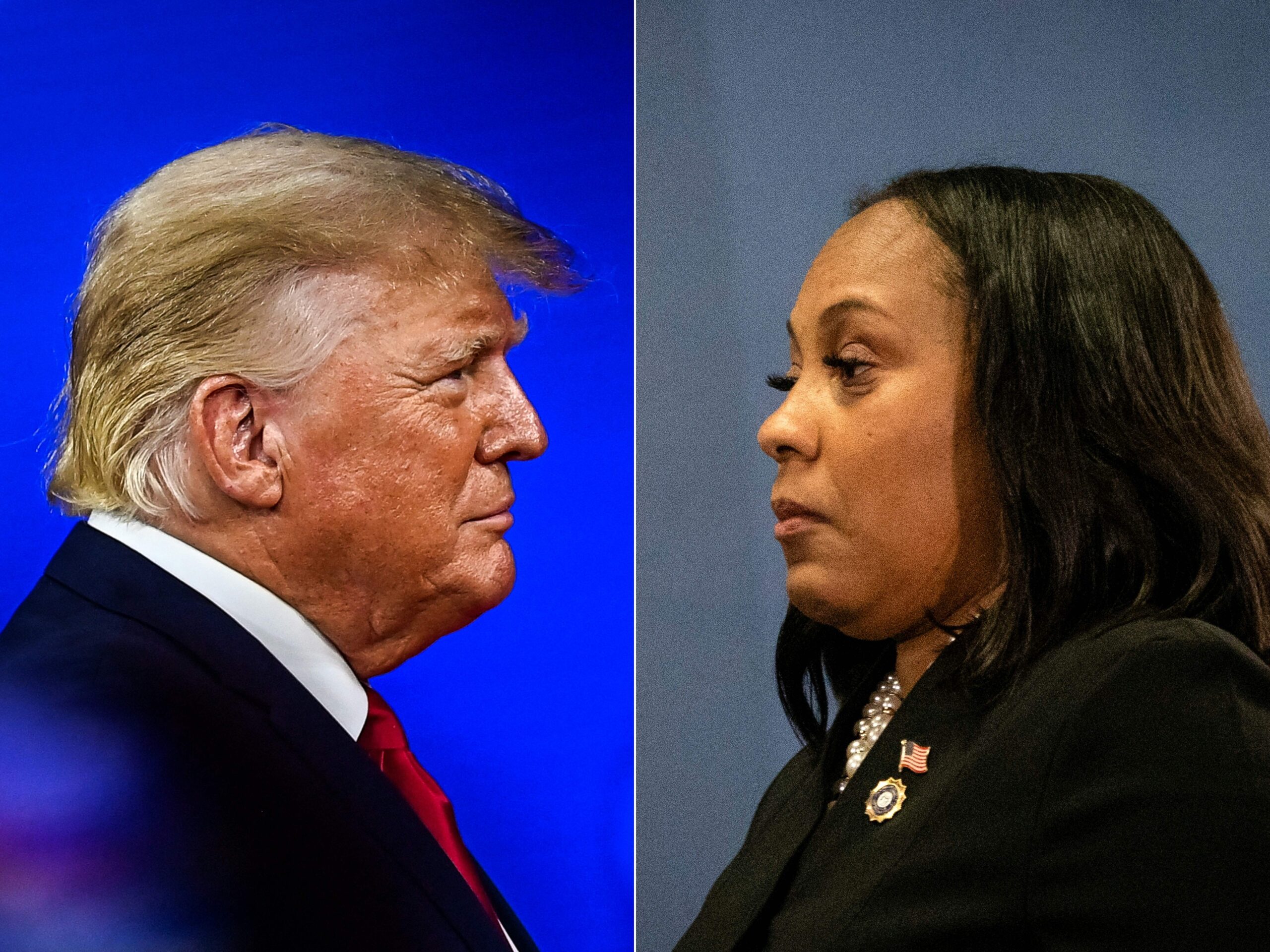A former federal prosecutor called the racketeering conspiracy indictment against former President Donald Trump and his allies a flawed case, claiming attempts to change an election outcome are legal and an actual criminal enterprise must be a continuing threat.
Fulton County District Attorney Fani Willis launched a 41-count indictment against Trump and 18 co-conspirators last week, accusing the defendants of attempting to overturn the 2020 presidential election result by allegedly violating the state’s version of the Racketeering Influenced and Corrupt Organizations (RICO) Act and soliciting an official to violate their oath of office.
Although Georgia’s RICO Act allows prosecutors to connect various crimes committed by multiple defendants, former Chief Assistant U.S. Attorney in the Southern District of New York Andrew McCarthy wrote an opinion piece written for The Messenger pointing to “a giant hole” in the case due to “the lack of a clear crime to which Trump and his co-defendants can plausibly be said to have agreed.”
Racketeering conspiracy charges typically apply to mafia-type criminal organizations that engage in offenses you would see in an episode of “The Sopranos.” But because conspiracy charges require an agreement with two or more people to violate a criminal statute, McCarthy said that if there is no agreement about committing a crime, there is no conspiracy.
In the indictment, Willis alleges that Trump and the co-conspirators tried to keep the former president in power after the 2020 election results claimed otherwise by explicitly attempting to “change the outcome of the election in favor of Trump.” Yet trying to reverse the election results without sharing an “overarching objective” is technically not a crime, McCarthy said.
He further alleges Willis is attempting to get around proof of the objective by using tautology in the charges, specifically noting on page 14 of the indictment that this was a “conspiracy to unlawfully change the outcome of the election in favor of Trump.”
“That is, the lawful objective of changing the election outcome somehow becomes unlawful because she invokes the apparently talismanic word ‘unlawful,’” McCarthy wrote. “But there is no crime of unlawfully trying to change an election outcome — not in Georgia law nor any other American law.”
McCarthy also said the RICO charge doesn’t fit the Georgia case because Trump and the co-defendants “did not intend or desire to belong to a group, or even see themselves as a group.”
“Their objective allegedly was to maintain Trump in power, not to participate in an enterprise,” he wrote.
Democratic State Representative Tonya Miller of Georgia, also a former prosecutor in Fulton County, told MSNBC on Sunday that the word “enterprise” under state law is defined broadly and includes one or more persons, legal or illegal businesses, and government agencies.
“RICO is particularly — in Georgia — particularly broad, more so than the federal version of RICO, because it isn’t just crimes that can form the basis of racketeering activity,” Miller said. “It can be acts involving crimes, threats involving crimes, so it really can get conduct that isn’t necessarily on its face criminal. We see that in this indictment.”
At the end of each act in the indictment, Willis alleges the defendants and other members and associates of the enterprise committed overt acts in furtherance of the conspiracy.
Emory University Law Professor Fred Smith Jr. told the outlet that the act of conspiracy could count so long as the action was in furtherance of the same goal.
“Now, of course, there does need to be illegal activity, a pattern of illegal activity, which under Georgia law is two crimes that are listed in that particular state statute,” Smith said. “But all other actions that may not themselves be illegal, so long as they were in furtherance of that same scheme, that same illegal goal can qualify.”

